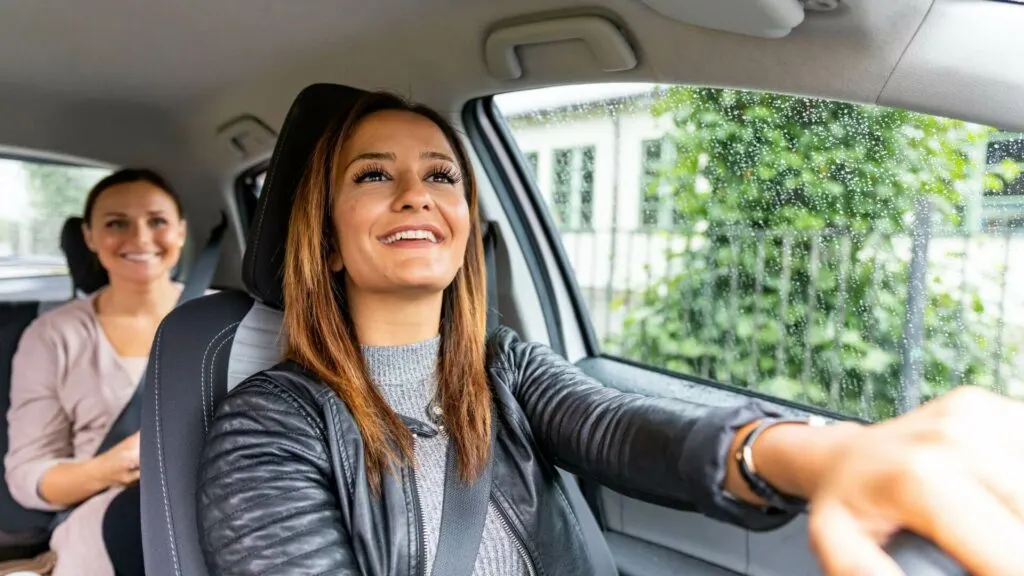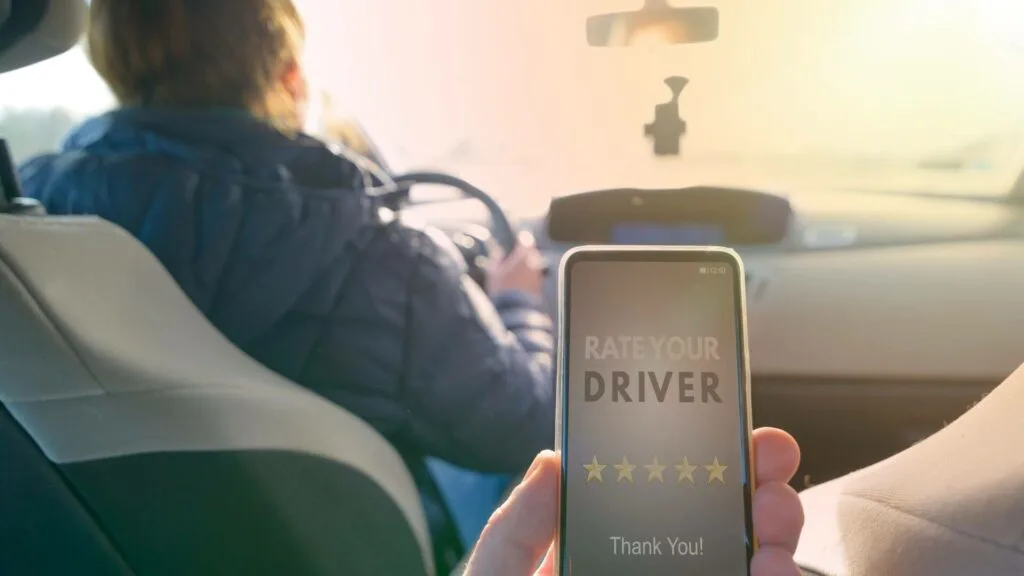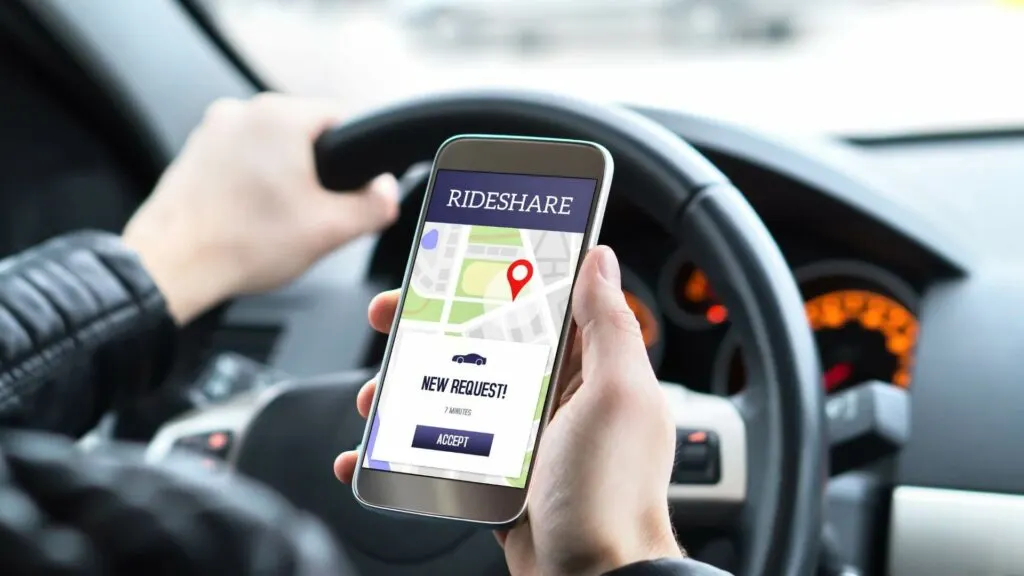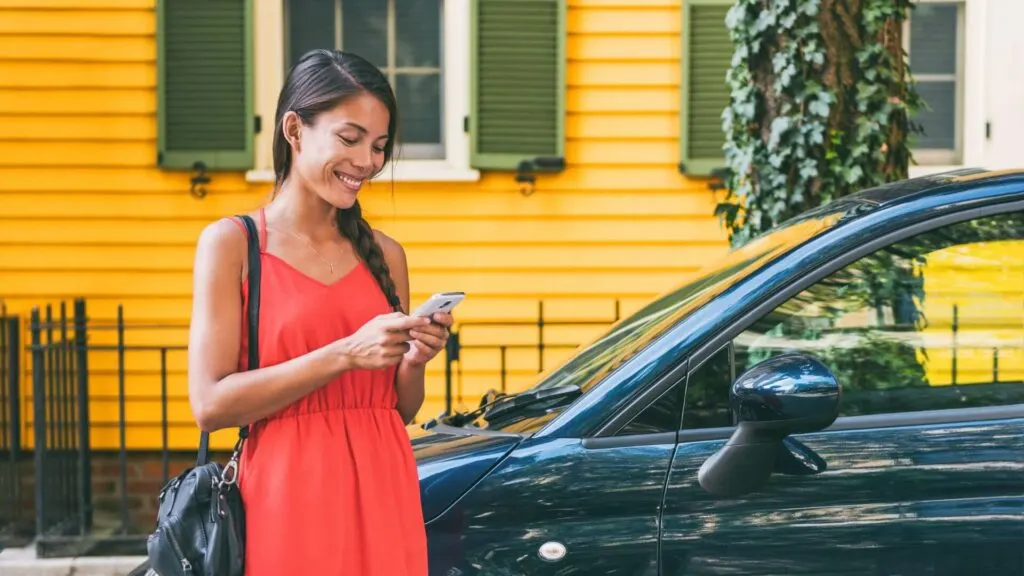In recent years, ridesharing services like Uber and Lyft have revolutionized transportation, offering a convenient and safe way to get around. However, the risk of accidents has increased along with the popularity of ridesharing.
As a result, it has become important for both passengers and drivers to understand rideshare accidents and their rights, especially in areas with unique insurance requirements like Florida.
This guide will provide an in-depth review of rideshare accidents, from common causes to what to do if you’re involved in such a crash.

Rideshare Insurance Requirements in Florida
Rideshare drivers have additional insurance requirements in Florida, depending on their status during the crash. Here is a detailed breakdown of the three main scenarios:
- If the driver is not logged into the rideshare app at the time of the crash, the rideshare company doesn’t provide any insurance coverage. This means that the driver’s personal auto insurance will be the primary source of coverage. Like all drivers in Florida, rideshare drivers are required to carry at least $10,000 in Personal Injury Protection (PIP) coverage and $10,000 in Property Damage Liability (PDL) coverage.
- If the driver is logged into the app and waiting for a passenger at the time of the accident, the rideshare company provides insurance coverage with some limitations. This coverage includes $50,000 Bodily Injury Liability (BIL) coverage per accident, $10,000 PIP coverage, $100,000 BIL coverage per person, and $25,000 in PDL coverage.
- If the driver is logged into the app and providing prearranged rides at the time of the accident, a PIP coverage of $10,000 and the rideshare company’s combined BIL and PDL coverage of $1 million apply.
What to Do Following a Rideshare Accident
If you’ve been involved in a rideshare accident, you must follow several steps to protect yourself and your legal rights. They include the following:
- Ensure Safety: Immediately after a rideshare accident, the first thing to do is check yourself and others involved in the accident for injuries. If anyone requires medical attention, call emergency services immediately. You could also move to a safe location away from oncoming traffic if it’s safe to do so.
- Report the Accident: Regardless of the severity of the accident, call the police to report the crash and file an accident report. This document will serve as irrefutable evidence once you decide to file an insurance claim.
- Document the Accident Scene: Use your phone to take pictures and videos of the accident scene. This may include photos of your injuries, vehicle damage, traffic signs, nearby landmarks, and road conditions.
- Exchange Contact Information: While waiting for the police to arrive, proceed to exchange contact details with the rideshare driver, other involved drivers, and any witnesses at the scene. Be sure to note details, like names, phone numbers, license plate numbers, and insurance information.
- Notify the Rideshare Company: Whether you’re the driver or passenger, ensure you notify the rideshare company about the accident. Every rideshare company has a specific procedure for reporting accidents. Follow that procedure to report the accident and document the scene.
- Seek Medical Attention: Even if you don’t have any visible injuries, ensure you seek medical attention after leaving the scene.
- Contact a Lawyer: After seeing a doctor, consider consulting a rideshare accident lawyer to help file an insurance claim and recover compensation for all the damages you’ve incurred from the accident.
Recoverable Damages Following Rideshare Accidents
Following a rideshare accident, a rideshare accident lawyer can help you recover economic and non-economic damages from the liable parties. These damages include:

- Past and future medical expenses
- Out-of-pocket expenses
- Past and future lost wages
- Lost earning capacity
- Property damage
- Pain and suffering
- Scarring and disfigurement
- Diminished quality of life
- Emotional anguish
- Temporary or permanent disabilities resulting from the injuries
Rideshare Company Requirements for Drivers and Their Vehicles
To guarantee safety for passengers, rideshare companies have specific requirements for their drivers and the vehicles they drive.
Driver Requirements
- Must be at least 21 years old
- Must provide proof of vehicle insurance
- Must have a valid U.S. driver’s license
- Must pass a safety screening that will verify their criminal history and driving record
- Must provide proof of residence in a particular city or state
- Must have at least a year of licensed driving experience

Vehicle Requirements

- Four-door sedan, hatchback, or SUV
- Temporary or permanent registration documents
- An insurance policy
- Must pass inspection
- Must be a new model, less than 15 years old
- Must be in good working condition
Common Causes of Rideshare Accidents
Even though rideshare drivers usually undergo a thorough background check, accidents still happen. The following are the most common causes of rideshare accidents:
- Distracted driving
- Fatigued and drowsy driving
- Aggressive driving
- Driving under the influence
- Inexperienced drivers
- Unfamiliarity with new routes and cities
- Poor road conditions
- Mechanical failures like faulty brakes

Ride Smart, Ride Safe
Although rideshare services offer a convenient way to travel, accidents still occur. However, by prioritizing safety measures, maintaining proper insurance coverage, and staying informed about the intricacies of rideshare accidents, individuals can protect themselves and use rideshare services with confidence.

Jessi is the creative mind behind The Coffee Mom, a popular blog that combines parenting advice, travel tips, and a love for all things Disney. As a trusted Disney influencer and passionate storyteller, Jessi’s authentic insights and relatable content resonate with readers worldwide.
